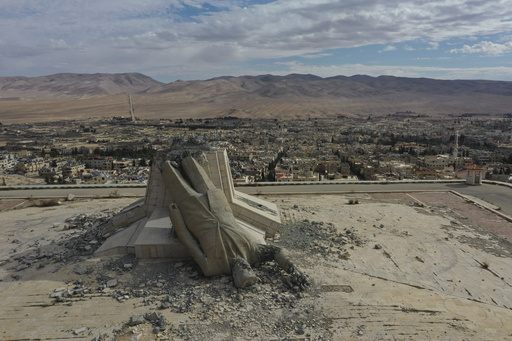BERLIN — An alarming trend has emerged as various nations reported their poorest performance in over a decade on a global index measuring public sector corruption. This decline spanned diverse countries, including major powers like the United States and France, alongside authoritarian states such as Russia and Venezuela.
The annual Corruption Perceptions Index, published by Transparency International, unveiled that 47 out of 180 nations recorded their least favorable scores last year since the introduction of its current assessment methodology in 2012. The organization’s recent findings for 2024 underscore that “global corruption levels remain alarmingly high, with efforts to reduce them faltering.”
Transparency International also highlighted the detrimental impact of corruption on global initiatives aimed at tackling climate change. They expressed concerns that insufficient transparency and accountability could lead to the misappropriation of climate funds. Additionally, they pointed out that “undue influence” from private sector interests often hinders the implementation of progressive policies.
The index evaluates public sector corruption perceptions using 13 different data sources, which include contributions from the World Bank, the World Economic Forum, and various private consulting firms. Countries are graded on a scale of 0 to 100, where lower scores indicate higher perceived corruption.
The global average score remained static from the previous year at 43, with over two-thirds of countries scoring below 50. Denmark retained its leading position with a consistent score of 90 points, followed closely by Finland at 88 and Singapore at 84. New Zealand saw a decline, dropping to fourth place with a score of 83.
Falling to the lowest rank on the index was South Sudan, which earned only eight points, surpassing Somalia, whose score fell to nine. Following them were Venezuela at 10 points and Syria at 12.
The United States experienced a decrease in its score from 69 to 65, slipping from 24th to 28th place in the rankings. Transparency International cited critiques surrounding the U.S. judicial system, noting that while the Supreme Court adopted its inaugural code of ethics in 2023, significant concerns persist regarding the enforcement of these new standards.
Other Western nations also saw declines, including France, which fell four points to 67 and dropped to 25th place, and Germany, which decreased three points to 75, landing in 15th place, tied with Canada, which lost one point and dropped three spots.
Mexico’s score declined by five points to 26 due to the judiciary’s failure to act on prominent corruption scandals. Transparency International remarked, “Despite former president Andrés Manuel López Obrador’s promises to combat corruption and reclaim stolen assets, his tenure concluded without securing any convictions or recovering funds.”
In Europe, Slovakia’s score fell by five points to 49 during the first full year of Prime Minister Robert Fico’s administration, as various reforms weakened anti-corruption safeguards and bypassed public input.
Russia continued its downward trajectory, shedding four additional points last year to reach a score of 22. Transparency International attributed this to the consolidation of authoritarianism following Moscow’s military actions in Ukraine since February 2022. Conversely, Ukraine’s score dipped by one point to 35, though the country is reportedly making progress in enhancing judicial independence and prosecuting high-level corruption.
The Middle East and North Africa region faces dire challenges in combatting corruption, characterized by political leaders exerting substantial control while enjoying privileges and suppressing dissent. However, the organization noted emergent opportunities, particularly in light of the recent upheaval of President Bashar Assad’s administration in Syria. Meanwhile, Sub-Saharan Africa held the lowest regional average score at 33.
In the Asia-Pacific region, governments continue to struggle in fulfilling their anti-corruption commitments, affirming the need for concerted efforts to address these pervasive issues.



